The Proposed 130th Constitutional Amendment: Clash with India’s Democratic Foundations
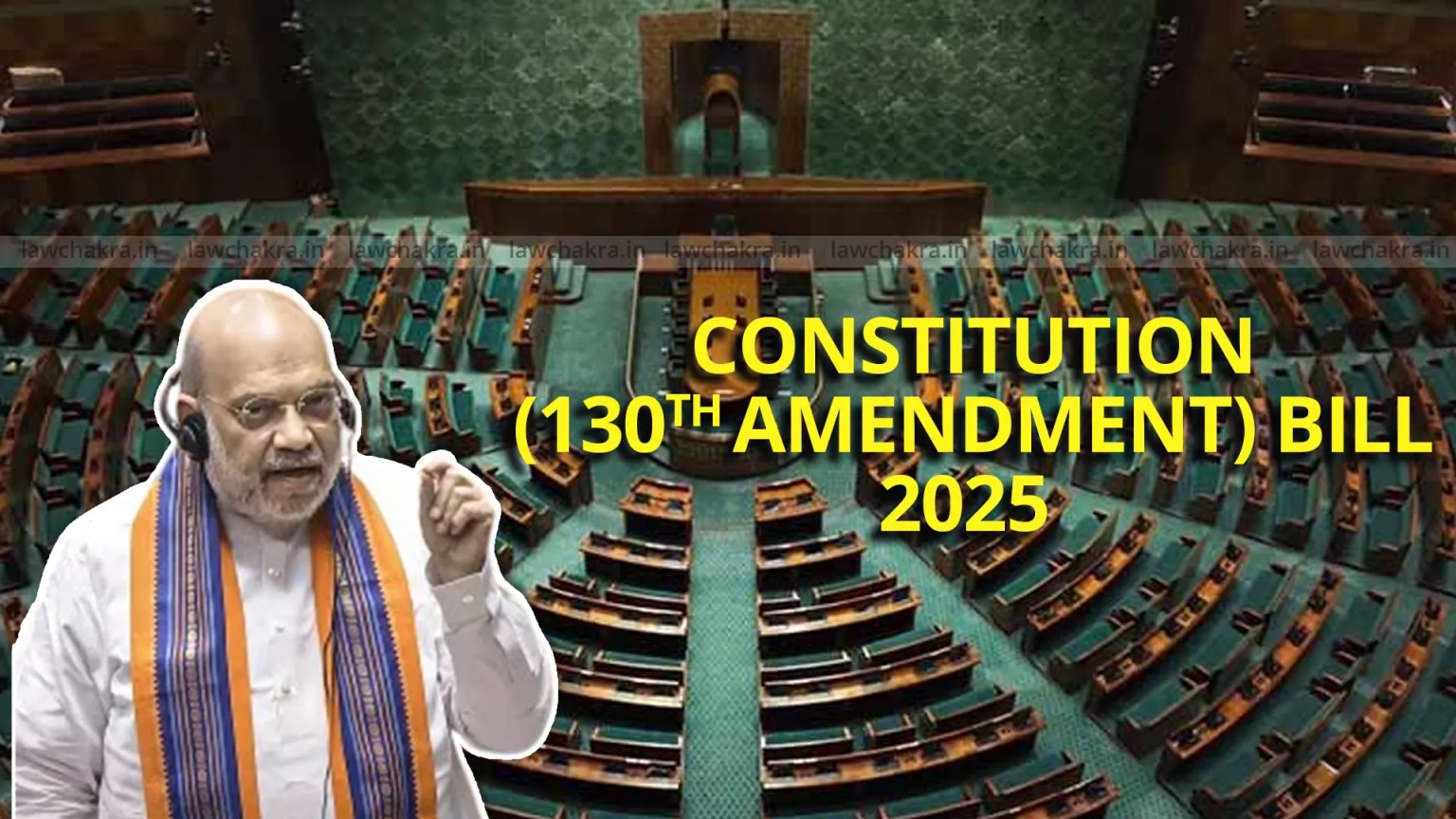
The political and legal firestorm unleashed on August 20, 2025, in the Lok Sabha by the tabling of the 130th Constitutional Amendment Bill by the Union Home Minister has left India’s polity sharply divided. The Bill, if passed, would mandate the automatic removal of ministers, chief ministers, and even the prime minister from office if they are detained or arrested for 30 days, regardless of whether they have been convicted or not. While the government calls it a step towards “ethical governance,” critics across the constitutional, legal, and political spectrum are branding it as ”draconian, unconstitutional, and diversionary.”
The Bill strikes at the heart of two cardinal principles of Indian constitutional democracy: the presumption of innocence until proven guilty and the basic structure doctrine safeguarding fundamental rights and federalism.
The Crux of the Proposed Bill
The 130th Amendment Bill seeks to insert a new provision in the Constitution directing the immediate disqualification and removal of elected executive functionaries from office upon their detention or arrest continuing for a period of thirty days. Unlike existing provisions—such as those under the Representation of Peoples Act, 1951, which disqualifies legislators only upon conviction for certain categories of offenses—this Bill would apply *prior to conviction*, simply based on detention or arrest.
In effect, a sitting Chief Minister arrested during a protest, or even the Prime Minister taken into custody under preventive detention laws, could automatically be stripped of their constitutional office after 30 days, irrespective of the subsequent findings of a court of law.
Presumption of Innocence Under Threat
At the heart of the criticism against the proposed Bill lies the presumption of innocence, a principle deeply embedded in Indian law and international human rights jurisprudence.
1. Constitutional & Legal Anchoring:- Though not explicitly written in the Constitution, the presumption of innocence flows from *Article 21*, which guarantees the right to life and personal liberty except according to “procedure established by law.”
- It is articulated through *criminal jurisprudence* under the Indian Penal Code and the Code of Criminal Procedure, ensuring that no individual is punished until convicted after a fair trial.
2. Global Human Rights Standard:- Article 11 of the **Universal Declaration of Human Rights (1948)* and Article 14(2) of the International Covenant on Civil and Political Rights (ICCPR), to which India is a party, affirm: ”Everyone charged with a penal offence has the right to be presumed innocent until proved guilty according to law in a public trial.”
3.Judicial Precedents in India:
- In Maneka Gandhi v. Union of India (1978), the Supreme Court expanded Article 21 to include procedural fairness.
- In Dataram Singh v. State of UP(2018), the Court reaffirmed that “a fundamental postulate of criminal jurisprudence is the presumption of innocence.”
The 130th Amendment Bill, critics argue, obliterates this cornerstone
by penalizing political leaders before they have been found guilty.
Clash with the Basic Structure Doctrine
The Supreme Court’s doctrine of “basic structure,” evolved in the landmark Kesavananda Bharati v. State of Kerala (1973)case, holds that Parliament cannot amend the Constitution in a way that destroys its essential features. Among these features are *federalism, democracy, judicial review, rule of law, and fundamental rights.
Right to Personal Liberty (Article 21 & 32)
By making arrest or detention a ground for disqualification, the Bill prejudices liberty without trial. Preventive detention laws in India, governed by Article 22, already place individuals at a disadvantage; linking such detention directly with the loss of high constitutional office amplifies the threat of arbitrary State power.
Moreover, Article 32 guarantees the right to constitutional remedies. If political leaders are forcibly disqualified before exercising their rights to challenge wrongful detention, Article 32 itself is rendered hollow.
Federalism at Stake
The disqualification of Chief Ministers based on arrest powers (often controlled by central agencies like the ED, CBI, or NIA) significantly strengthens the Union’s dominance over States. Critics argue this creates fertile ground for political misuse against opposition-controlled state governments, undermining India’s “federal balance.”
The Bill could potentially override the electoral mandate itself. A Prime Minister or Chief Minister, despite commanding legislative majority, could be removed not by vote of confidence or the people’s verdict, but by mere arrest—turning the principle of popular sovereignty into executive discretion.
The Political Context: Diversion or Reform?
Opposition parties have unanimously condemned the move as diversionary, calling it a strategy to turn attention away from rising unemployment, economic distress, and spiraling farmer protests. Many argue that with the 2026 state elections looming, the Bill is a tool to target regional satraps and opposition chief ministers.
Senior advocates emphasized that Section 8 of the Representation of People’s Act already provides mechanisms to disqualify convicted legislators. The Bill, therefore, appears less about ethics in public life than about shifting the balance of political power.
A Comparative Perspective
To assess whether the 130th Amendment truly aligns with global democratic practices, it helps to examine models elsewhere:
- United Kingdom: Ministers are not removed merely on arrest; political convention sometimes demands resignation upon “grave charges,” but this is not a legal mandate.
- United States: A sitting President cannot be removed upon arrest or even indictment. Impeachment by Congress is the constitutional process.
- South Africa: Disqualification follows conviction and sentencing, not pre-trial custody.
Thus, India would stand out as an *exceptionally punitive democracy*, penalizing elected leaders before due process.
Arguments in Favour – The Government’s Stand
Proponents of the Bill frame it as an “anti-corruption” measure. They argue:
- Citizens ought not to be governed by leaders facing serious charges or prolonged detention.
- Disqualification upon mere arrest could strengthen “ethical governance” and public confidence in institutions.
- It deters misuse of political office to obstruct investigations.
However, critics contest this with a simple counter—*law already provides checks.* Convicted leaders stand automatically barred. Extending disqualification before conviction merely weaponizes the law.
Legal Experts Sound the Alarm
Several constitutional scholars have described the Bill as *”constitutionally vulnerable.”*
- Fali S. Nariman (late jurist, earlier writings): Had warned that any amendment undermining presumption of innocence may be struck down for violating due process.
- Indira Jaising (senior advocate): Warned that giving agencies the power to unseat elected chief ministers “hands a loaded gun to the executive.”
- Justice (Retd.) A.P. Shah: Noted that “the doctrine of basic structure bars Parliament from tilting the federal equilibrium to a point where States become hostage to Union agencies.”
The Bill, if challenged, will likely reach the Supreme Court, setting the stage for another historic constitutional confrontation.
The Danger of Preventive Detention Linkage
India already has one of the most criticized preventive detention frameworks in democracies. Laws like the National Security Act (NSA) allow authorities to detain individuals for months without trial. Tying preventive detention to disqualification could mean:
- A CM arrested for 31 days under NSA—even without trial—loses their office.
- Such use could be politically motivated, weaponizing law enforcement against dissenters.
- This further degrades constitutional liberties that already stand on fragile ground.
Possible Consequences if Passed
If enacted, the Bill could create far-reaching institutional implications:
1. Frequent Political Instability: State governments could collapse overnight upon arrest of CMs.
2. Erosion of Electoral Mandates: Public choice would yield to police custody as the determinant of leadership.
3. Surge in Political Misuse of Arrest Powers: Agencies may face pressure to detain leaders to engineer disqualifications.
4. Judicial Backlog: Courts will be flooded with challenges against wrongful disqualification, bogging down the system.
In short, instead of cleansing politics, the amendment may destabilize governance.
Constitutional Remedies Ahead
If the Bill is passed in Parliament, opponents are expected to approach the Supreme Court under Article 32 challenging its constitutionality. The Court would then need to decide:
- Does the 130th Amendment violate the *basic structure* by damaging fundamental rights and federalism?
- Can the presumption of innocence be legally bypassed by legislative amendment?
- Where does the rule of law stand when executive detention becomes the trigger for political unseating?
A Constitutional Crossroads
The proposed 130th Amendment Bill is more than just another piece of legislation—it represents a deep test of India’s democratic resilience. It places in sharp contrast two visions: one that equates governance with purity, enforced through disqualification before guilt is proven; the other that sees democracy as robust enough to withstand accusations until courts convict.
In a Republic built on liberty, due process, and federalism, the latter vision is what the Constitution promises its people. If passed and upheld, the 130th Amendment will mark a radical departure from that legacy. If struck down, it will reaffirm once again that India’s Constitution is not just a parchment of rules, but a living guardian of freedom.
For now, the House may debate and lawyers may argue—but the ultimate verdict will rest with the courts, and above all, the conscience of the Indian people.
(Author is a former member of the history faculty at St. Xavier’s College, Mumbai.)

 2 weeks, 6 days ago
2 weeks, 6 days ago


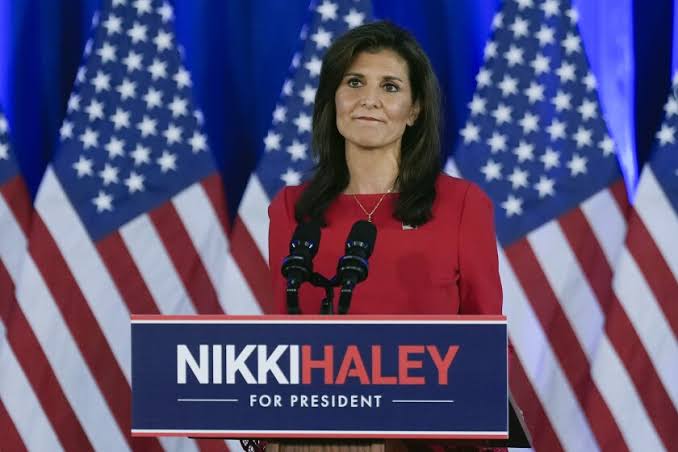

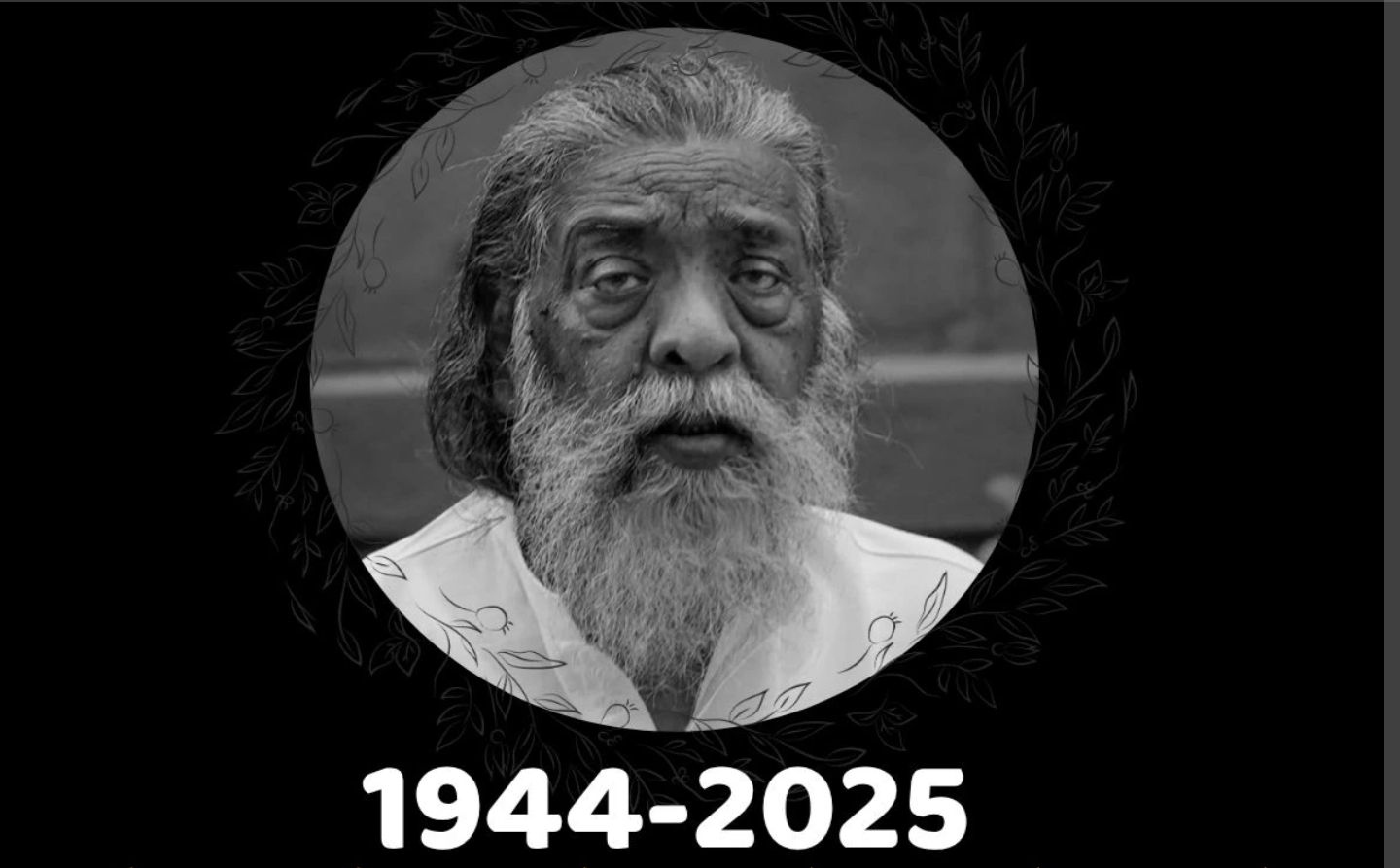
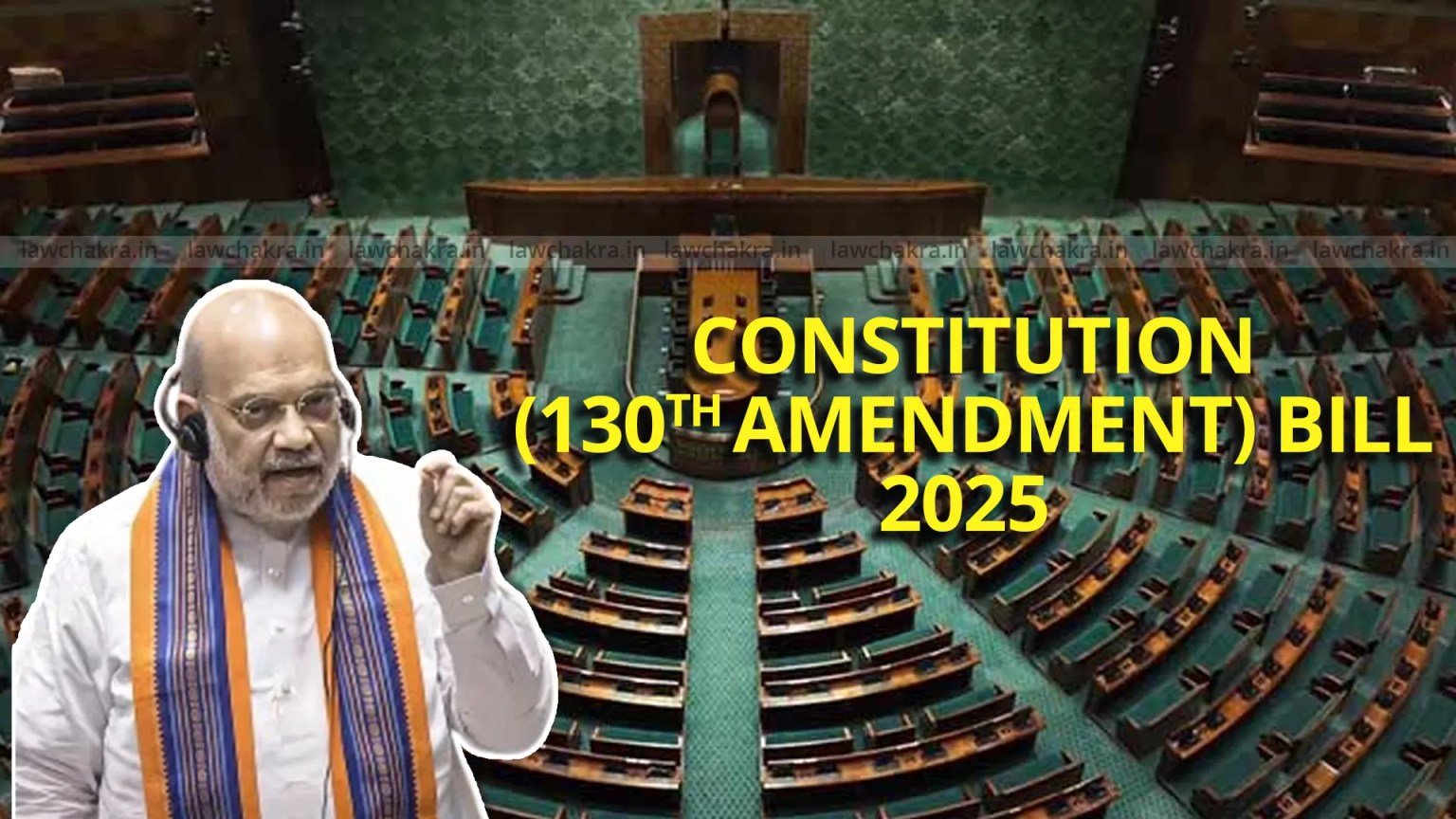



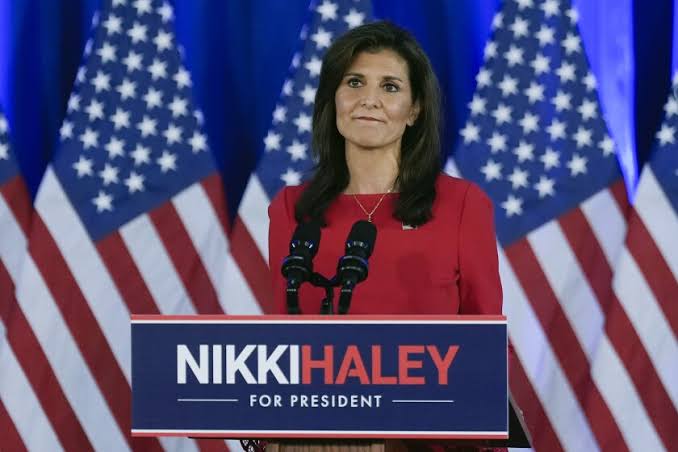

[[comment.comment_text]]